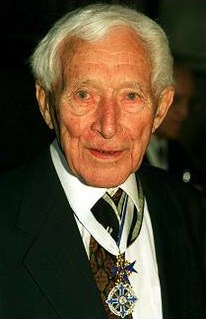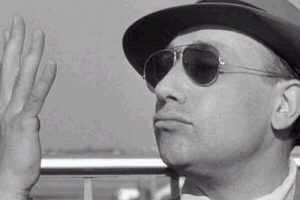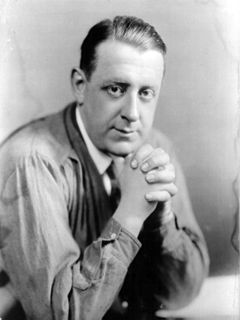A Quote by Don DeLillo
Man's guilt in history and in the tides of his own blood has been complicated by technology, the daily seeping falsehearted death.
Related Quotes
There is a man who exists as one of the most popular objects of leadership, legislation, and quasi-literature in the history of all men. . . . This man, that object of attention, attack, and vast activity, cannot make himself be heard, let alone understood. He has never been listened to. . . . That man is Black and alive in white America where the media of communication do not allow the delivery of his own voice, his own desires, his own rage.
Geology is rapidly taking its place as an introduction to the higher history of man. If the author has sought to exalt a favorite science, it has been with the desire that man-in whom geological history had its consummation, the prophecies of the successive ages their fulfilment-might better comprehend his own nobility and the true purpose of his existence.
By raising Christ from death, God as the supreme Judge set his seal to the absolute perfection and completeness of his atoning work. The resurrection is a public announcement to the world that the penalty of death has been borne by Christ to its bitter end and that in consequence the dominion of guilt has been broken, the curse annihilated forever more.
The (capital punishment) controversy passes the anarch by. For him, the linking of death and punishment is absurd. In this respect, he is closer to the wrongdoer than to the judge, for the high-ranking culprit who is condemned to death is not prepared to acknowledge his sentence as atonement; rather, he sees his guilt in his own inadequacy. Thus, he recognizes himself not as a moral but as a tragic person.
To act and act wisely when the time for action comes, to wait and wait patiently when it is time for repose, put man in accord with the rising and falling tides (of affairs). So that with nature and law at his back, and truth and beneficence as his beacon light, he may accomplish wonders. Ignorance of this law results in periods of unreasoning enthusiasm on the one hand, and depression on the other. Man thus becomes the victim of the tides when he should be their Master.
Man is the only animal that deals in that atrocity of atrocities War. He is the only one that gathers his brethren about him and goes forth in cold blood and calm pulse to exterminate his kind. He is the only animal that for sordid wages will march out... and help to slaughter strangers of his own species who have done him no harm and with whom he has no quarrel.... And in the intervals between campaigns he washes the blood off his hands and works for the universal brotherhood of man with his mouth.
Man is the only Patriot. He sets himself apart in his own country, under his own flag, and sneers at the other nations, and keeps multitudinous uniformed assassins on hand at heavy expense to grab slices of other people's countries, and keep them from grabbing slices of his. And in the intervals between campaigns he washes the blood off his hands and works for the universal brotherhood of man - with his mouth.
I have been manipulated, and I have in turn manipulated others, by recording their response to suffering and misery. So there is guilt in every direction: guilt because I don't practice religion, guilt because I was able to walk away, while this man was dying of starvation or being murdered by another man with a gun. And I am tired of guilt, tired of saying to myself: “I didn't kill that man on that photograph, I didn't starve that child. That's why I want to photograph landscapes and flowers. I am sentencing myself to peace.
Focus on guilt will always breed fear, and focus on innocence will always breed love. Any time we project guilt onto someone else, we are fortifying the experience of guilt within ourselves. Like blood on Lady MacBeth's hands, we cannot remove our own guilty feelings as long as we are judging others.
[N]either in war nor yet at law ought any man to use every way of escaping death. For often in battle there is no doubt that if a man will throw away his arms, and fall on his knees before his pursuers, he may escape death; and in other dangers there are other ways of escaping death, if a man is willing to say and do anything. The difficulty, my friends, is not in avoiding death, but in avoiding unrighteousness; for that runs faster than death.






































